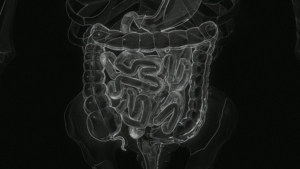
Modernisation of patent law – boon or bane for patentees?
The German Patent System has been a very patentee-friendly system, in particular for smaller patentees. Enforcement of patents has been relatively easy, affordable and fast.
The patentee’s weapon injunction was a sharp and affordable sword. Even big companies came to the negotiation table with smaller patentees when they feared an injunction against their allegedly patent infringing products. According to the German law, an injunction has been automatically issued against a patent infringer. The automatic injunction in infringement suits is presently the most hotly discussed topic in Germany. In particular, the German car and telecom industries have advocated a change of the regulation in order to weaken this strong measure. The new patent law will now include in §139 a clause that there will be exceptions in a few individual cases, for example, if the consequences for the infringer are unreasonably severe. In the explanatory memorandum to the draft, the ministry emphasized that it wants to merely clarify the current regulation and to specify possible exceptions. The ministry also states that such a change of § 139 must not lead to a devaluation of patent law. With the present changes of the second draft, it seems that the automatic injunction remains the rule and an exception may be granted in a few cases.
Same contents, new packaging?
The German pharma industry has strongly emphasized how important the injunction is for the innovative life science industry. Without a strong injunction, a period of legal uncertainty for patentees and a weakening of the enforceability of patents is feared. Investments into innovation may be reduced, enforcement proceedings could be more lengthy and costly and the predictability of success may be considerably reduced which reduces legal certainty. It is, however, unclear whether this will be the final draft of the new Patent Law or whether the proponents of the weaker automatic injunction may successfully convince the lawmakers in the discussions to come. It remains also to be seen how the courts will adapt the new provisions.
The modernization of the Patent Law further also aims to improve the so-called bifurcated system: fast infringement proceedings before the ordinary courts on one hand and slow validity proceedings before the Patent Court on the other. This bifurcation leads to different interpretations of the claim by different courts, and no defense of the prior art in case of literal infringement before an infringement court. Further, because of the different timelines, an injunction may be enforceable after the first instance of the infringement before validity of the patent has been decided upon in the slow validity proceedings. The ministry wants to synchronize infringement and nullity proceedings. The ministry wants to set tighter deadlines for the Federal Patent Court, so that after only six months the infringement courts receive an indication as to whether a patent-in-suit is likely to be maintained or not. This may reduce the misuse of invalid patents.
It seems important that the lawmakers consider that easy, predictable and affordable infringement proceedings are a key for the successful German Court System and are key for smaller patentees. Predictability of enforcement success and legal certainty shall remain a major issue for patentees and investors into innovations.
This text was originally published in the European Biotechnology Magazine Spring 2021.



 Unsplash+
Unsplash+